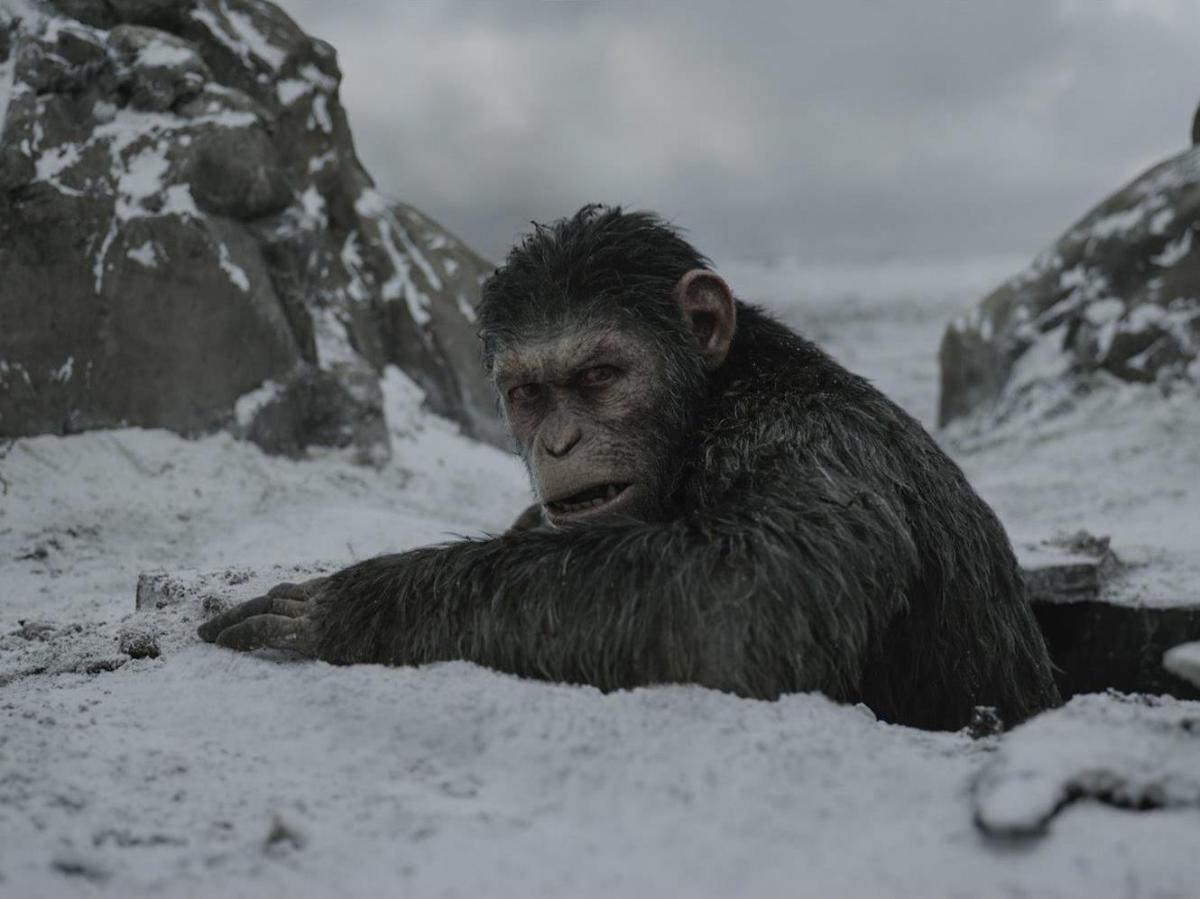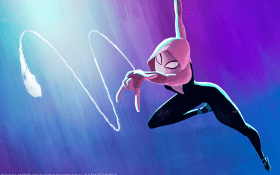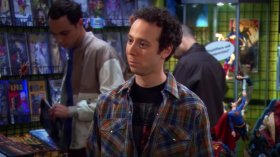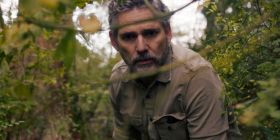It’s one of the most famous lines in film history, and one of the most revealing: “take your stinking paws off me, you damn dirty ape!” Charlton Heston’s crashed astronaut Taylor can’t voice his ire forcefully enough, the character aggressively objecting to being handled by his simian captors, and bristling against their perceived primitive nature. More than anger bursts from his loud exclamation, however, with his tone also crackling with abhorrence at the shift of power between species, and defiance against the idea of acquiescing to animals. Of course, he’s actually doing little more than demonstrating humanity’s own savagery — and gifting the Planet of the Apes series with a neat but potent encapsulation of its very focus.
That juxtaposition — of mankind’s expectation of superiority in the animal kingdom, and its accompanying reversion to violence in order to enforce it — has sat at the heart of the franchise since its initial 1968 outing, continuing across four sequels, both a live-action and an animated TV show, the 2001 remake and the now three-strong prequel saga. And so, with a name literally shouting combat, War for the Planet of the Apes strips the series’ main thematic concern down to a sparse yet certain battle between primates. Its moniker is blunt and bloodthirsty with good reason; there’s no doubting that a fray has arrived, but there’s also no doubting that one has been waged through the demeanour, actions and motivations of its opposing camps for as long as viewers have been watching.
Following on from 2011’s Rise of the Planet of the Apes and 2014’s Dawn of the Planet of the Apes, War for the Planet of the Apes returns to the titular astronomical body at time when tensions have peaked between the militarised survivors of the human-decimating simian flu and the creatures overseen by chimpanzee Caesar (Andy Serkis, Star Wars: Episode VII — The Force Awakens). After showing mercy to attacking soldiers in an attempt to broker peace, only to see his camp decimated by the Colonel’s (Woody Harrelson, Wilson) troops in return, Caesar pledges to get revenge against the man leading the anti-ape charge.
A trek through unforgiving terrain towards an inevitable showdown; a clash of forces, with both clearly scarred by their fighting and some questioning the point of their combat; a quest to guide a persecuted populace to safety: with echoes of westerns, war flicks and biblical epics gone by, all combine for Matt Reeves’ (Let Me In) second time at the Apes helm, with the director also co-writing this latest jaunt with returning scribe Mark Bomback (Insurgent). More than merely mimicking a cinematic obsession with oaters, keeping the big screen filled with battles and proving politically astute — with building a wall also a pertinent plot point — War for the Planet of the Apes nods to these genres for their inbuilt awareness of the extremes of human unkindness. With simians the sympathetic figures, and Caesar recognising that his need for vengeance makes him no better than his foes, the film intends for its social and behavioural commentary to cut deep.
An internal struggle results as much as an external one, though that has always been Planet of the Apes and its offshoots’ gambit. Here, however, it comes with ample intelligence and contemplation — albeit threatening to veer into overlong and overstated territory — as well as a considered, feature-improving central performance. While there’s little nuance in Harrelson’s Colonel Kurtz-like descent into almost madness, or in the silent presence of young Amiah Miller (Lights Out) as the only human female character, an abundance scampers through Serkis’ motion-captured efforts. Augmented by ever-impressive computer generated imagery, the current Apes outings have been able to eradicate the visible gap between man and beast, apart from the obvious physical traits, but it’s the main actor behind the technical wizardry that ensures the movie makes an emotional dent.
Indeed, to watch Serkis convey Caesar’s tumult is to watch someone at the height of his craft, and to experience the turmoil of sentience at its most affecting in tandem. In his hands (or body, more accurately), the character proves an imperfect hero, but one that couldn’t be more emblematic of the series he’s in. Though the Apes franchise has weathered crests and drops in its various iterations, it’s at its best when it probes the moral complexities at its core. For all of the fighting still raging, and the bravery, brutality and betrayal that it brings, screamed dismay has largely become whispered recognition — and the mostly smart, serious and soulful War for the Planet of the Apes is all the more powerful for it.
Rating: 3 ½ stars out of 5
War for the Planet of the Apes
Director: Matt Reeves
USA | Canada | New Zealand, 2017, 140 mins
Release date: July 27
Distributor: Fox
Rated: M
Actors:
Director:
Format:
Country:
Release:





